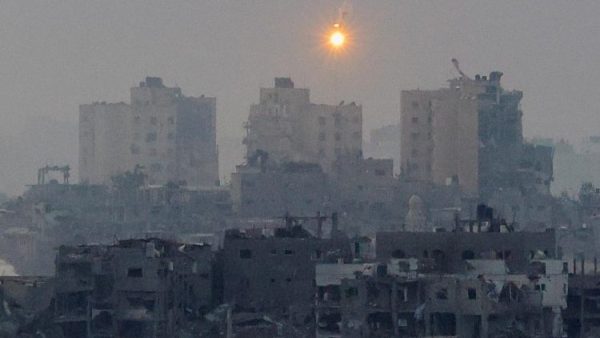Professor Amnon Aran: two-State solution still distant
 In a wide-range interview to L’Osservatore Romano on the current war between Hamas and Israel, Senior lecturer Amnon Aran of London's City University says the two-state solution in Israel-Palestine is the only viable solution but, at present, is still a long way off.
In a wide-range interview to L’Osservatore Romano on the current war between Hamas and Israel, Senior lecturer Amnon Aran of London's City University says the two-state solution in Israel-Palestine is the only viable solution but, at present, is still a long way off.
Amnon Aran is a Professor of International Politics of the Middle East at the City University of London. Speaking to L’Osservatore Romano’s Roberto Paglialonga he offered a wide range analysis of the new crisis and its possible outcome.
The objectives of both Israel and Hamas contribute to the current deadlock
Asked about the viability o the two-state solution advocated by the international community, he said that though it is still on the table, progress on this front won’t be possible until the security and political scenarios in Israel and Palestine change. According to the Israeli academic, the ongoing conflict and the objectives of both Israel and Hamas contribute to the current deadlock and also make a ceasefire impossible.
In the interview Professor Aran said that Israel's goal is not so much to eliminate Hamas as a political idea, but more realistically to neutralize its military capabilities. However, he said, if Israel manages to substantially weaken Hamas’ military power, there is an open question on what will happen after.
The aftermath of the war in Israel and Palestine
Regarding the aftermath of the war in Israel, Professor Aran explained that there is a wide consensus in Israeli society on the inevitability of the conflict to assure Israel’s security. However, at a political level, the lack of a national unity government is a significant divide in the country.
Asked about the U.S. plan to have the Palestinian Authority govern Gaza after the war, Aran deemed it realistic, but acknowledged potential demands from the Palestinian National Authority (PNA), such as changes in the status quo in the West Bank.
Professor Aran further pointed to the challenges currently facing the PNA, namely the weak leadership of 88-year-old President Mahmoud Abbas and its problems of legitimacy and corruption, noting that ifHamas is weakened, there is no other actor capable of filling that void.
Role played by other countries in the conflict
With regards to the role played by other countries in the conflict, Professor Aran recalled the mediation of Qatar and Egypt, who have relations with both sides, while Jordan is in a more defensive position and hopes that the situation in the West Bank does not explode.
Then there are the potential entrants in the conflict, including Iran and its allies Hezbollah in Lebanon, and the Houthis in Yemen. Russia is also siding with Hamas in the Gaza conflict.
On the opposite side the United States have deployed forces in the Red Sea and the eastern Mediterranean to prevent an extension of the war. For its part, Saudi Arabia, (which was finalizing its agreement with Israel before the October 7 massacr) so far has kept a low profile, but could provide legitimacy and funds for a post-conflict agreement,.
Regarding Türkiye’s position, professor Aran said it is unlikely to play a significant role during the conflict, as President Recep Erdoğan has openly sided with Hamas. He said it will probably join in the reconstruction phase, as Ankara and Tel Aviv have common interests, including energy and security, though Erdogan will only deal with PM Netanyahu's successor.
Roberto Paglialonga and Lisa Zengarini
Source: vaticannews.va/en

